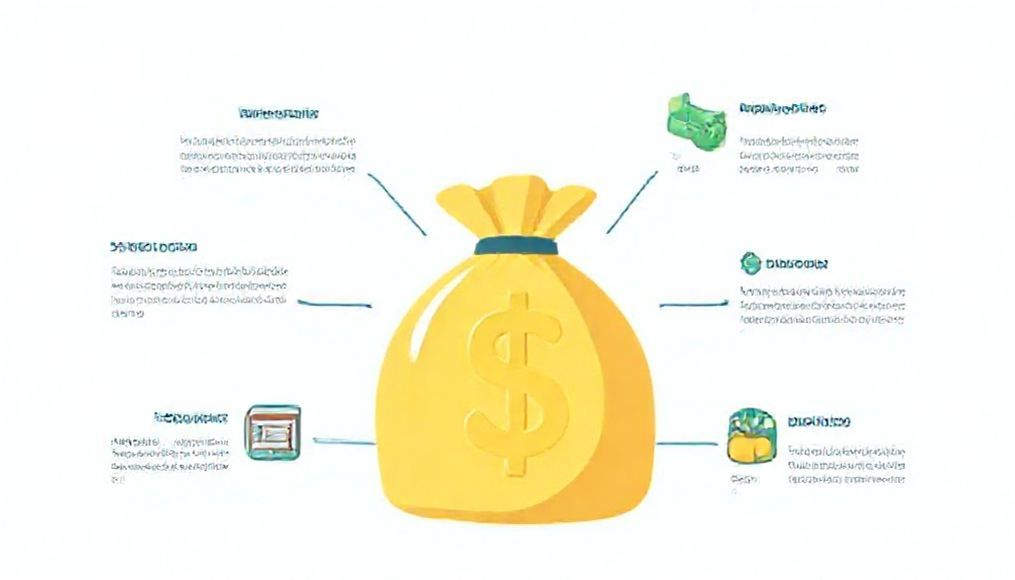How to Save Money on Hobbies and Recreational Activities Without Sacrificing Enjoyment
Hobbies and recreational activities are an essential part of our lives, contributing to our mental and physical well-being, and providing us with a sense of happiness and relaxation. However, these activities can often become a financial burden. So, how can we enjoy our favorite hobbies without breaking the bank? That's what we'll cover in this article.
Chapter 1: Identifying Priorities and Evaluating Expenses
The first step towards saving is identifying your priorities. Which hobbies and activities are indispensable to you? And which can you reduce spending on or replace with less expensive alternatives?
- Make a List of Hobbies and Recreational Activities: Jot down all the activities you enjoy, whether it's reading books, exercising, traveling, or others.
- Evaluate Expenses: Determine how much you spend monthly or annually on each activity. Use expense tracking apps or a simple spreadsheet to record expenses.
- Identify Priorities: Rank activities according to their importance to you. Identify activities you consider essential for your health and happiness, and those you can reduce spending on or eliminate.
Example: If you love traveling, you can identify travel as a core activity, but reduce costs by choosing cheaper destinations, traveling during off-peak seasons, and staying in budget hotels or guesthouses.
Chapter 2: Creating a Budget for Hobbies and Recreational Activities
After identifying priorities, it's time to create a dedicated budget for hobbies and recreational activities. This budget will help you control your spending and avoid exceeding financial limits.
- Determine the Total Amount Allocated for Recreation: Set a specific percentage of your monthly or annual income that you can allocate to hobbies and recreational activities. This percentage should be realistic and match your financial situation.
- Allocate the Budget to Different Activities: Distribute the total amount to the different activities you identified in the previous step. Allocate larger amounts to priority activities and smaller amounts to others.
- Stick to the Budget: Try to stick to the budget you set as much as possible. If you exceed the budget in one month, try to compensate in the following months.
Tip: You can use budget management apps to help you track your spending and stick to your budget.
Chapter 3: Finding Cheaper Alternatives
Often, we can enjoy the same hobby or recreational activity at a lower cost by finding cheaper alternatives.
- Look for Deals and Discounts: Take advantage of deals and discounts offered by stores and recreational centers. Subscribe to their newsletters and follow their social media pages for the latest offers.
- Use Coupons: Use coupons found in magazines, newspapers, and online to get discounts on recreational activities.
- Participate in Free Activities: Look for free activities in your area, such as free concerts, art exhibitions, and sports events.
- Trade Services with Friends: If you're good at a particular skill, you can trade services with friends. For example, if you're good at photography, you can take photos for friends in exchange for guitar lessons.
Example: Instead of joining a gym, you can exercise at home or in public parks. Instead of buying new books, you can borrow books from the library or buy used books.
Chapter 4: Leveraging Free Resources
There are many free resources we can leverage to enjoy our hobbies and recreational activities without spending a lot of money.
- Public Libraries: Public libraries offer a wide range of books, magazines, movies, and music for free.
- Free Museums and Art Galleries: Many museums and art galleries offer free admission on certain days of the week or month.
- Public Parks: Public parks provide vast green spaces for relaxation, exercise, and enjoying nature.
- Free Websites and Apps: There are many free websites and apps that offer entertainment and educational content, such as online courses, documentaries, and music.
Tip: Look for free resources available in your area and leverage them as much as possible.
Chapter 5: Shopping Smart
If you need to buy equipment or supplies for your hobby, it's important to shop smart to get the best prices.
- Compare Prices: Before buying, compare prices between different stores and online.
- Shop During Sales Seasons: Wait for sales seasons to buy the equipment and supplies you need at discounted prices.
- Buy Used Products: Consider buying used products instead of new ones. You can find used products in good condition at much lower prices in specialized stores or online.
- Buy in Bulk: If you need a large quantity of supplies, consider buying in bulk to get discounts.
Example: If you love painting, you can buy canvases and paints in bulk during sales seasons to get better prices.
Chapter 6: DIY (Do It Yourself)
You can save a lot of money by doing some things yourself instead of buying them ready-made. This is especially true for creative hobbies like knitting, sewing, woodworking, and painting.
- Learn New Skills: Learning new skills like knitting or sewing can help you save money by making your own clothes and accessories.
- Recycle Materials: Use recycled materials to make new things. For example, you can use empty tin cans to make flower pots, or use old clothes to make pillows.
- Make Gifts Yourself: Instead of buying ready-made gifts, you can make gifts yourself. This will make the gift more personal and special, and it will also help you save money.
Tip: Look for tutorials online or in community centers to learn new skills.
Chapter 7: Reducing Waste
Often, we waste a lot of money on hobbies and recreational activities without realizing it. By reducing waste, we can save a significant amount of money.
- Use Materials Effectively: Use the materials you have effectively and avoid wasting them. For example, if you're painting, use every part of the canvas before disposing of it.
- Store Materials Properly: Store your hobby materials properly to protect them from damage. This will help you avoid having to buy new materials constantly.
- Repair Damaged Equipment: Instead of replacing damaged equipment with new equipment, try to repair it. Often, damaged equipment can be repaired at a much lower cost than buying new equipment.
Example: If you love photography, clean the camera lens regularly to protect it from damage.
Chapter 8: Planning Ahead
Planning ahead is key to saving money in any area, including hobbies and recreational activities.
- Plan Trips in Advance: If you're planning a trip, book hotels and airline tickets in advance to get the best prices.
- Plan Recreational Activities in Advance: Plan the recreational activities you want to do in advance and look for available deals and discounts.
- Prepare a Shopping List in Advance: Before going to the store to buy hobby supplies, prepare a shopping list in advance and stick to it. This will help you avoid buying unnecessary things.
Tip: Use a calendar or task management app to plan your recreational activities in advance.
Chapter 9: Rethinking Expensive Hobbies
Sometimes, it may be necessary to rethink expensive hobbies that are draining your budget. It may be better to replace these hobbies with less expensive hobbies or find ways to reduce the cost of these hobbies.
- Replace Expensive Hobbies with Less Expensive Hobbies: If your hobby is too expensive, consider replacing it with a less expensive hobby. For example, instead of playing golf, you can walk or run.
- Reduce the Cost of Expensive Hobbies: If you don't want to give up your expensive hobby, try to find ways to reduce its cost. For example, instead of going to the cinema every week, you can watch movies at home.
Example: If you love stamp collecting, you can focus on collecting stamps from a specific category instead of collecting all types of stamps.
Chapter 10: Investing in Experiences Instead of Possessions
Studies have shown that investing in experiences brings more happiness than investing in possessions. Instead of spending money on buying material things, consider spending money on new experiences, such as traveling, attending concerts, or learning a new skill.
- Traveling: Traveling gives you the opportunity to explore new cultures, experience new things, and broaden your horizons.
- Attending Concerts and Cultural Events: Attending concerts and cultural events gives you the opportunity to enjoy art and music and connect with others.
- Learning a New Skill: Learning a new skill gives you a sense of accomplishment and self-confidence.
Tip: Allocate a portion of your budget to spend on new experiences.
By following these tips, you can save money on your hobbies and recreational activities without sacrificing enjoyment. Remember that saving isn't just about reducing spending, it's also about making smart decisions about how you spend your money.




